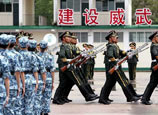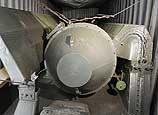
The State General Administration of Press, Publication, Radio, Film and Television has lifted approval requirements for 20 items, indicating a relaxation in controls over the film and publishing industries, in a bid to cut red tape and boost the cultural market.
Screenwriters and film producers do not need to submit screenplays for films with "general themes" to the administration for censorship anymore, but a synopsis will still be published on the administration's official website for the public to review, according to a circular issued by the State Council Wednesday.
An official with the film division of the administration, who didn't reveal his name, told the Global Times that the synopsis review policy for general-theme movies has been applied since 2004, but it is the first time the department has made an official announcement to the public.
In order to obtain a permit to shoot films, producers first need to submit a 1,500-word synopsis to the provincial film administration where the company is registered, and then file it at the state administration for approval. "The state administration will ask to read the full script if they have any problems with the synopsis, and let you make adjustments accordingly," Wei Ke, a Beijing-based producer, told the Global Times.
Observers say the announcement is a good sign for the future diversity of the Chinese film sector, particularly if productions with general themes can be subject to less screenplay censorship and have less administrative intervention.
Industry professionals have often blamed the strict censorship system imposed by the film watchdog for the unsatisfactory state of the domestic film industry.
However, the definition of general and special themes should be clarified, wrote Lu Chuan, director of City of Life and Death, on his Sina Weibo.
According to the policy, films involving significant revolutionary or historical events, diplomacy, ethnic, religious, military or judicial affairs, and co-productions are considered as "special" and still need to submit screenplays.
"It could be good news for films with topics like romance, comedy or science fiction, giving them more space for creativity. However, the standards must be clear or the administration could follow their own interpretations," said Wei.
Wang Xiaoyu, a sociologist and culture critic with the Shanghai-based Tongji University, said the censorship relaxation will have limited effect as the films may not hit the silver screen if they fail to pass approvals before screening. "The ultimate solutions is still establishing a rating system and allowing other kinds of cinemas to develop, and letting the audience choose what they like," he told the Global Times on Wednesday.
In the publishing industry, overseas exhibitions and the promotion of domestic publications will no longer need approvals and the administration will stop putting a cap on the total quantity of book numbers, and adopt a "creative management method," though it didn't give any details.
Currently, only State-owned publishers are qualified to receive book registration number quotas from the administration every year, and to hold book exhibitions and promotions overseas. Private publishers can apply for a limited amount of book numbers as part of the creative industry, but generally need to cooperate with State-owned publishers to get book numbers.
Private publishers see the new policies as a form of encouragement, and consider it a cost reduction promise as the average amount they pay to get a book number is currently more than 10,000 yuan ($1,630).
"These measures will help private publishers be more active in participating in the international market and strengthen their influence. The best thing is, it's a trend showing that we are getting more recognition [from the authorities]," Liu Xiangya, director of Sunnbook Culture and Art, a large Beijing-based private publisher, told the Global Times.
However, Liu added that the industry still needs to observe the new management measures over book numbers, and the wider participation of private publishers in the international market will also increase competition with State-owned rivals and therefore improve industry standards.
The circular also clarified the responsibilities of the administration since it was reorganized in March, emphasizing industry reform and copyright protection.
















 Fuzhou tops the list of hottest cities in China
Fuzhou tops the list of hottest cities in China


![]()
